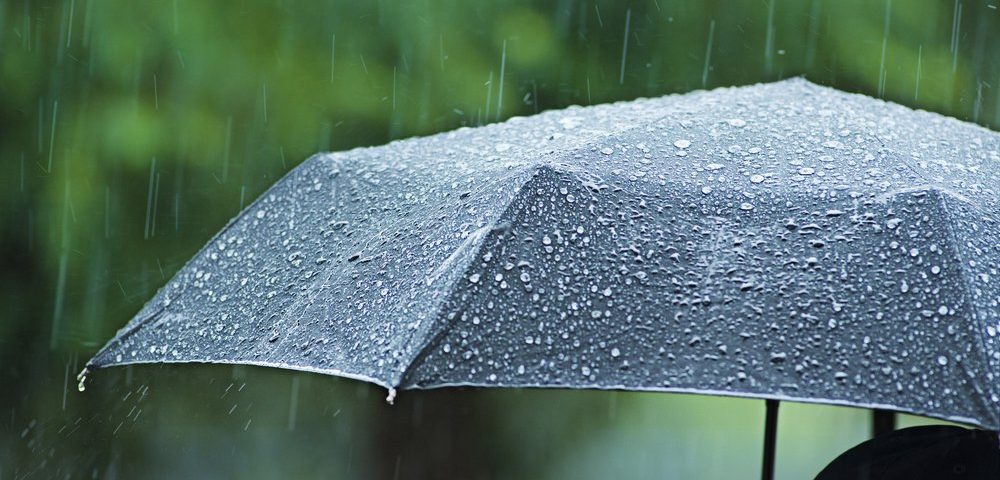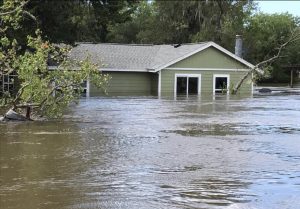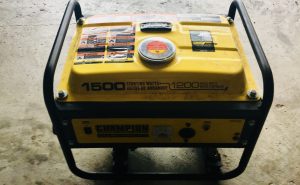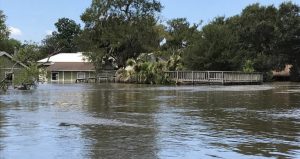Natural Disaster Preparedness Tips for PH Patients
Written by |

The number of devastating natural disasters has increased significantly in the past several years. These billion-dollar disasters strike some states repeatedly. Therefore, residents in those areas realize the importance of preparedness.
I stay on alert because I live on Texas’ Gulf Coast. I also live with pulmonary hypertension (PH) and coexisting illnesses, so preparedness is all the more crucial for me.
Living with a chronic illness like PH is a challenge in itself. Throwing in a natural disaster increases anxiety and stress. Since my PH diagnosis, my family and I have evacuated at least three times. For this reason, I try to plan ahead, especially during hurricane season. Unfortunately, we are smack-dab in the middle of a busy one. Dorian has decimated peoples’ homes and lives. My heart goes out to those who were in the path of this storm.
Two years ago, my family was tremendously impacted by Hurricane Harvey. At that time, our daughter and her husband (aka our kiddos) had just purchased their first home. The kiddos and my husband worked on it tirelessly for several months. They spent many weekends working into the early morning hours. Of course, I was napping, eating, or supervising. Ha-ha!
Since they lived along the bayou, the kiddos had planned to stay at our house during the storm. Our area was not expected to take the brunt of it. We decided to take a drive out to their house once the wind and rain started. We spoke with a few of their neighbors, who said that the area had not flooded in more than 30 years. We headed back home, thinking we had everything squared away and safe.
Little did we know that Harvey was now heading our way.
Despite our extra supplies of meds, food, and water, we decided not to ride out the storm. Because I am on oxygen and require air conditioning, we evacuated. If you’re ever in Texas during the dog days of summer, you will understand.
I loaded my hubby, the kiddos, and Sasha, our miniature schnauzer, into my Jeep Cherokee. Off we went into the wild blue yonder — except, we didn’t drive very far. The roads in and around Houston were already flooding. This was quite the expedition. Trying to maneuver open roads to evacuate was quite a challenge. My awesome “son-in-love” from Colorado, who was unfamiliar with hurricanes, was directing me from the back seat.
After what seemed like days, we arrived at a quaint little town only about four hours away. We were exhausted, cranky, and “hangry,” but we were together and safe. We found a room and food. The people in this town were kind and compassionate, and we hung around there several days.
Unfortunately, Harvey flooded our kiddos’ home. It was overwhelming and heartbreaking to look at the remains of what they had been working on for months. We were grateful that our home did not flood and we could all live in it.
Preparedness is only part of the story. The Federal Emergency Management Agency warns that devastation from a hurricane can come not only during the storm, but also in the days or weeks after it. Our area was intermittently without power and water for weeks. Some in the Houston area had no power for months.
We have a backup generator for emergencies, but we cannot afford a generator for the entire house. We can only run my oxygen concentrator and a fan or an appliance. This is one reason we plan to evacuate, if possible.
Natural disasters strike quickly and without warning. I suggest that those who have medical conditions like PH always have a Plan B.
A few helpful tips
- Evacuation: If possible, evacuate. If you’re not physically able to do this, I suggest you contact your local emergency management office and ask for assistance. You can often preregister for this service.
- Medications: Have enough meds on hand for a few weeks, minimum.
- Medical information: Have copies of your current meds and medical issues, including contact information for your doctors. If you evacuate, you may end up in another town or state and in need of medical care.
- “Go bag”: Have your “go bag” available. It would be similar to the bag you keep packed for an emergency hospital visit.
Do not forget to inform a close family member or friend where you are going. Often, cell service is interrupted. I had that issue during Hurricane Ike. Remember, in a natural disaster, you and your loved ones’ safety is the top priority.
Have you been impacted by a natural disaster since your PH diagnosis? Please share in the comments below.
***
Note: Pulmonary Hypertension News is strictly a news and information website about the disease. It does not provide medical advice, diagnosis, or treatment. This content is not intended to be a substitute for professional medical advice, diagnosis, or treatment. Always seek the advice of your physician or other qualified health provider with any questions you may have regarding a medical condition. Never disregard professional medical advice or delay in seeking it because of something you have read on this website. The opinions expressed in this column are not those of Pulmonary Hypertension News or its parent company, Bionews Services, and are intended to spark discussion about issues pertaining to pulmonary hypertension.







Leave a comment
Fill in the required fields to post. Your email address will not be published.